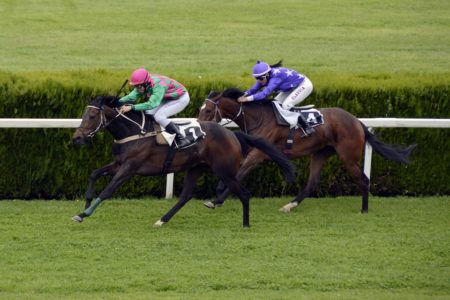12 November 2020
By Roger Jones
roger@TheCork.ie
Horse racing, also known as the sport of kings, is the second most popular sport in the United Kingdom. Each year an estimate of 6 million attend the races in Britain alone. It is worth over £4.6 billion to the UK economy, with the majority of the money coming from betting shops which generated over £4.2 billion from gamblers and from the estimated 15,000 registered racehorse owners who spent about £435 million in 2019. But there is one country that plays a significant role in horse racing in the United Kingdom: Ireland. Ireland is the third largest producer of thoroughbred horses in the world, they are the second highest in terms of the value of the horses sold and the breeding of horses generates over £1.6 billion each year.
Sir Anthony Peter McCoy
Sir Anthony Peter McCoy, also known as Tony McCoy or AP McCoy, is a Northern Irish former horse racing jockey. His first winner was recorded in 1992 at the age of 17 and the for the next 20 years he was a consecutive Champion Jockey. He rode a record of 4,358 winners and retired in April of 2015. The iconic jockey rode in more than 16,000 races, some of the most high-profile include Cheltenham Gold Cup, Champion Hurdle, Queen Mother Champion Chase, King George VI Chase and the 2010 Grand National, an event so grand in itself, it’s covered by almost all online betting sites. He remains the most successful jump jockey of all time.
Richard ‘Boss’ Croker
In the 19th century, Ireland wasn’t seen as a competitor in the world of horseracing, even though Irish-bred and owned horses won many of the most prestigious English Classics, as well as the Derby. This is because no Irish-trained horse had won the English Derby, however this changed in 1907 with the victory of the Irish-trained Orby, spurred on by the determination of his owner Richard Croker. Richard ‘Boss’ Croker built his stable in Glencairn in Sandyford, hiring Colonel Freddie McCabe as his trainer, after returning to Ireland from New York where he was an influential and controversial politician.
Vincent O’Brien
Vincent O’Brien could arguably be the most influential racing figure of all time. From 1948 until 1955, during the Cheltenham Gold Cup, Champion Hurdle and Grand National, he sent out three winners in a row at each of those jump races. This was very uncommon and because of the dominant performance at the Cheltenham Gold Cup, he effectively created the conditions that allowed for the Irish involvement that is seen today. The bloodlines of his greatest horses are found in the pedigrees of horses around the world. He is also greatly remembered in his country for giving the people something to rally behind when Ireland was experiencing rough economic times.
Ruby Walsh
Ruby Walsh started his career by winning the Irish amateur twice at the age of 18, today he is regarded as one of the greatest jockeys of all time. Walsh rode over 2500 winners before retiring in 2019. Some of his wins at high-profile races include Cheltenham Festival, Queen Mother Champion Chase, Cheltenham Gold Cup, Tingle Creek Chase and Hennessy Gold Cup. He was the leading jockey at the Cheltenham Festival for 11 years as well as being the Irish jump jockey champion 12 times. Walsh is the third most prolific winner in British and Irish jump racing history behind only Sir Anthony McCoy and Richard Johnson.
Conclusion
Ireland has come a long way in the horseracing world from 1907, with Richard Croker winning the English Derby and Vincent O’Brien winning the Cheltenham Gold Cup with an Irish-trained horse, changing how the Irish participated in the sport of kings. This made it possible for people like Sir Anthony Peter McCoy to become the most successful jump jockey of all time, and Ruby Walsh to become the third most prolific winner in British and Irish jump racing history. The bloodlines of Vincent O’Brien and the lands of Ireland make Irish-bred horses the most durable and trustworthy in the world, used by thousands of jockeys. The history of horse racing and the significant impact Ireland has had are interlinked, with people like Joe McGrath who sponsored the Irish Derby, influencing how the sport is viewed in Ireland today and making all of the abovementioned accomplishments possible.



